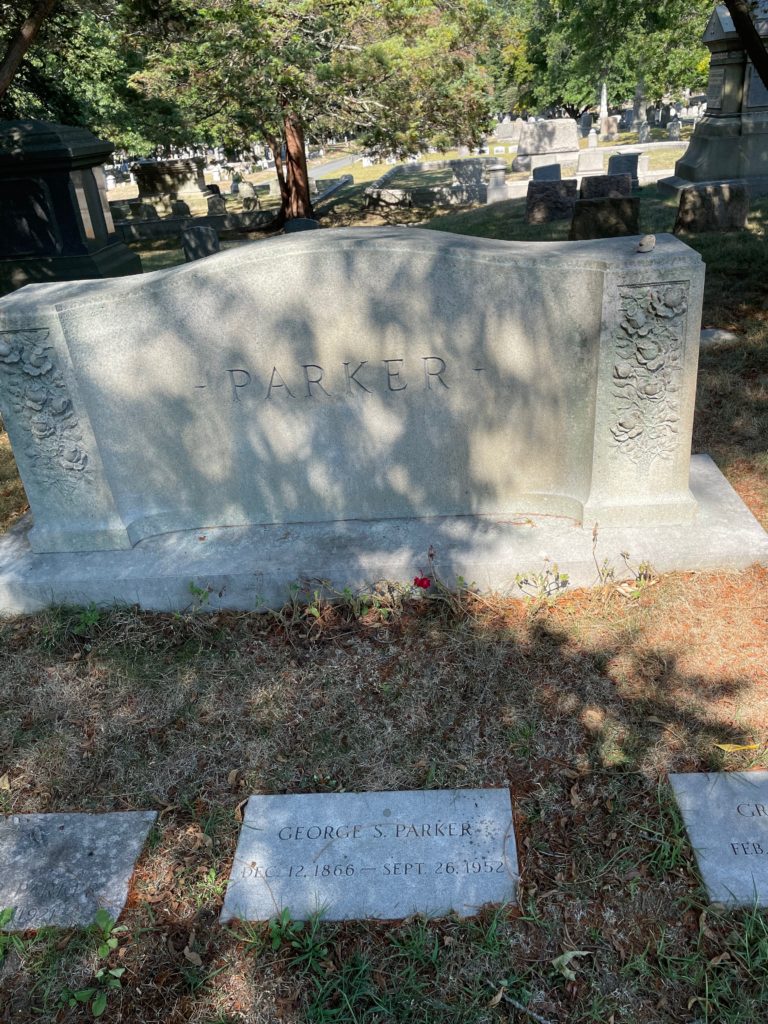Erik Visits an American Grave, Part 1,222
This is the grave of George Parker.

Born in 1866 in Salem, Massachusetts, Parker just loved board games. He was a huge fan from the time he was a child. But the thing about nineteenth century board games is that they were intended to teach morals. They were used as a “fun” way to teach values. Parker hated this and really, why shouldn’t he? People want to play games that are fun, not that are boring moral lessons.
So Parker decided to dedicate his life to this. In fact, he was developing his own board games by 1883, when he was a mere 17 years old. Banking was the name of his first game and it was basically a game about guessing how much money you could make based on the cards you drew. He made a small profit on it but the big game publishers didn’t take the kid that seriously.
So that same year, again still only 17, he founded George S. Parker & Co to develop his own games. This eventually became Parker Brothers when his older brother, who had encouraged his brother from the beginning, joined the company. This of course changed board game history. George generally did most of the work in the early years, developing the games and making up the rules. He tended toward topical board games early on; in the late 1890s, he developed Klondike, for instance.
The company really succeeded after 1906 when it created Rook, which became one of the big card games of the day.
None of these early games are still played today, I don’t think. What created the company as a truly permanent part of the American scene was the publishing of Monopoly in 1935. This was not a game that Parker created. They bought it from the creators and made it a huge huge deal. Later came games such as Sorry and Clue. In fact, the American version of Clue was based on Parker’s own house, though it is a British game originally, which although I had never thought about it before, seems obvious upon consideration. They also developed Risk, which is probably more than anything else the progenitor of the modern lengthy complex board game, not that I’m really an expert on this.
I should say here that I don’t particularly enjoy board games and just find them boring. I know the games these days are incredibly complex and intensive and can take days and I just find them dreadfully dull. Just not what I enjoy using my brain power, such as it is, on. But you all go for it in comments. Might as well be an open thread about board games on this fine Thursday morning.
By the time Parker died in 1952, he had created around 100 board games. By this time he was living in Boston and was 85 years old.
George S. Parker is buried in Harmony Grove Cemetery, Salem, Massachusetts.
If you would like this series to visit other board game creators, you can donate to cover the required expenses here. Lizzie Magie, who developed the precursor to Monopoly, is in Arlington, Virginia, although not on the confiscated lands of the traitor Lee, and Charles Darrow, who took that game and created the modern version of Monopoly, is in Feasterville, Pennsylvania. Previous posts in this series are archived here.


